Category: Racial Equity & Inclusion
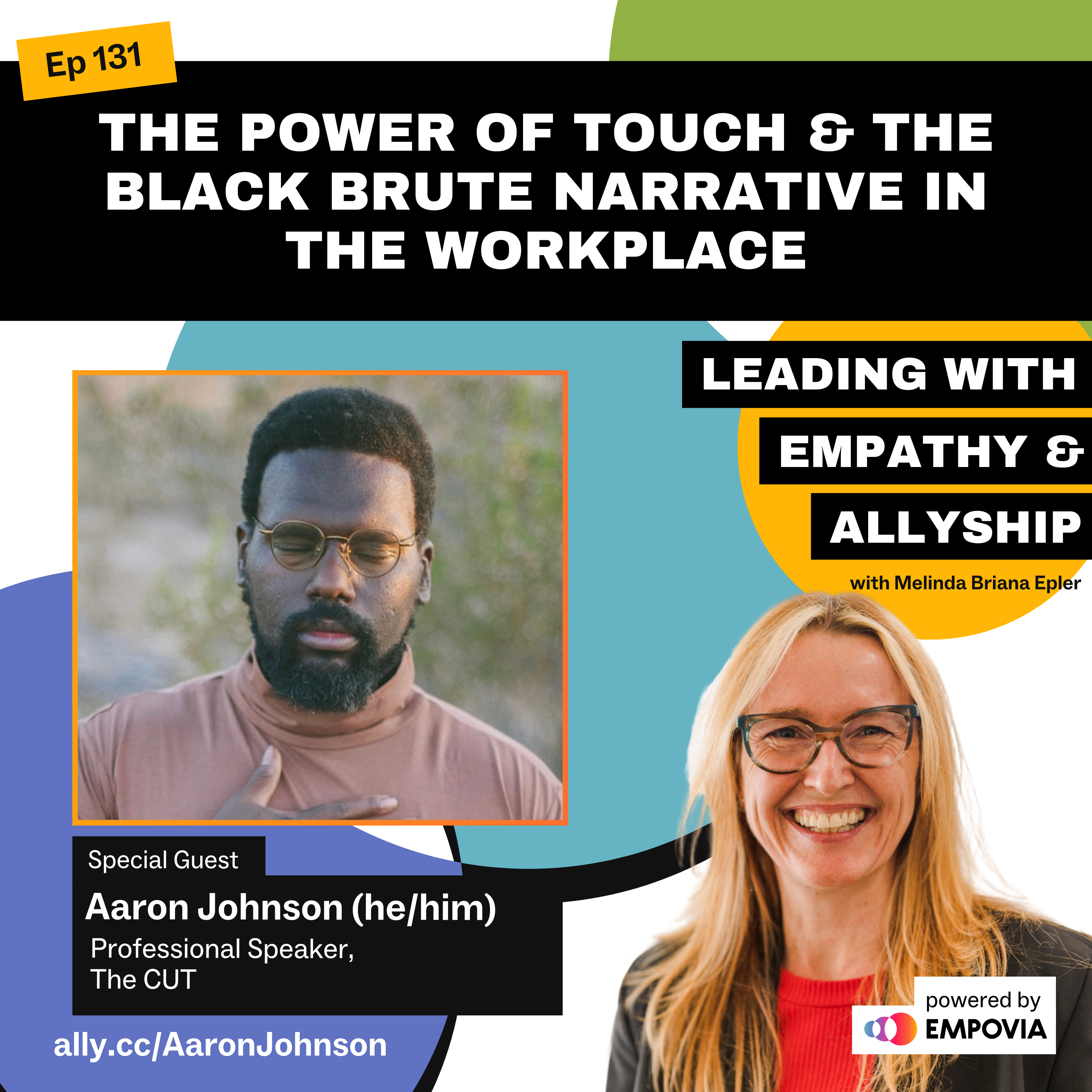
| 46 min
What is holistic resistance? How can we practice it to break historical narratives and challenge oppression in the workplace?
In Episode 131, Aaron Johnson, Professional Speaker at The CUT, joins Melinda in an honest conversation on the power of touch and the Black brute narrative in the workplace. They explore holistic resistance as a response to the profound impact of the Black brute narrative on African heritage men. They discuss ways this narrative shows up in the workplace, including through a lack of safe space where Black men can be vulnerable, set boundaries, and protect themselves when those boundaries are violated. They also discuss the relationship between White women and Black men and how each of us can advocate for anti-racism in the fight against oppression.
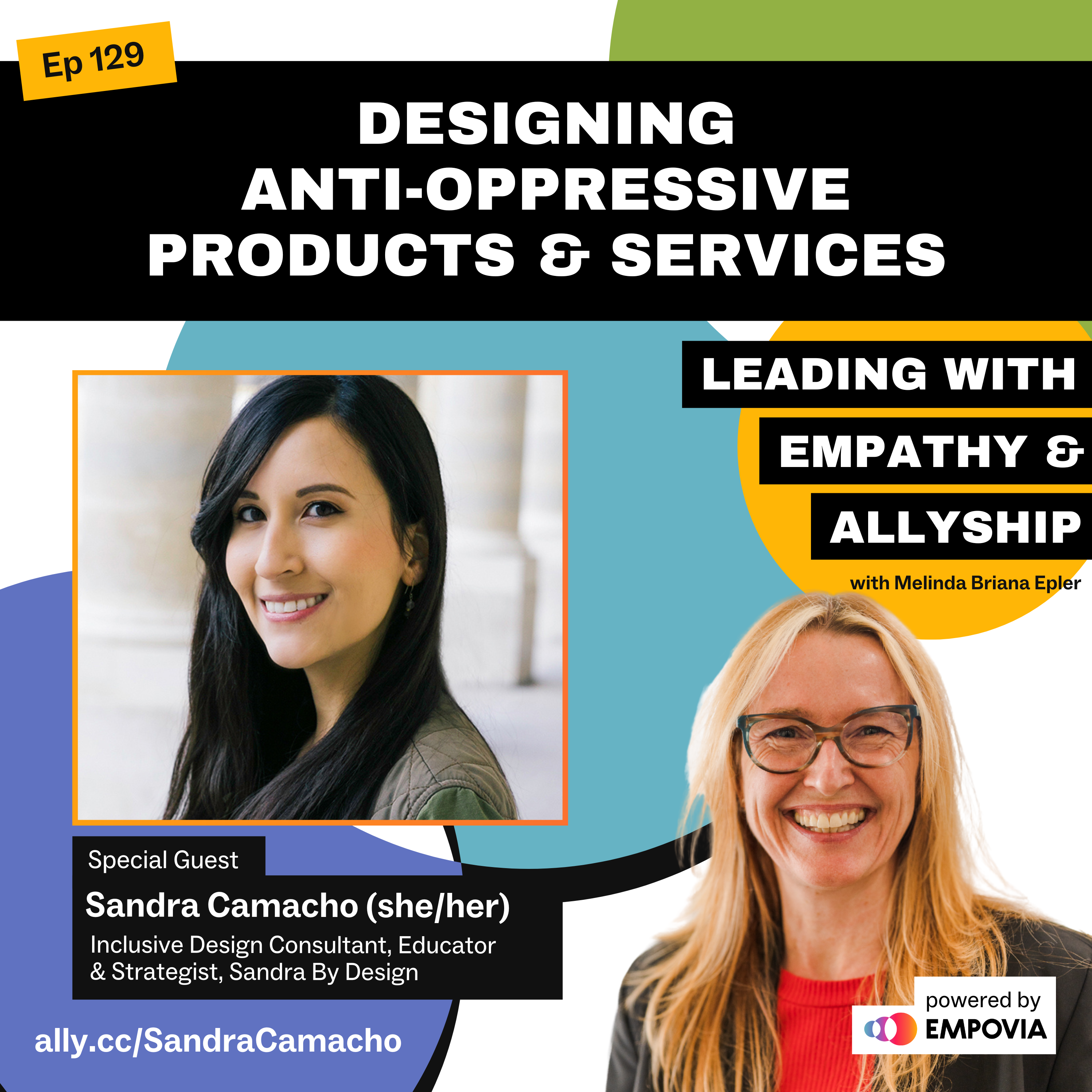
| 46 min
What are the key principles of inclusive design? How can we use those principles to create equitable and anti-oppressive products and services?
In Episode 129, Sandra Camacho, Inclusive Design Consultant, Educator & Strategist at Sandra By Design, joins Melinda in an informative discussion on techniques for designing anti-oppressive products & services. They discuss the importance of centering the needs of marginalized communities and considering intersectional identities throughout the product development and design process. They also dive into ways we can challenge and disrupt oppressive norms and systems to promote solutions that are accessible and beneficial for all individuals.

In Episode 115, Melinda shares talks from previous Empovia (formerly Change Catalyst) events made by Black leaders Daisy Ozim, Dr. Angel Acosta, and Ashantè Fray that tackle the impact of Black history on our present and future. At Tech Inclusion 2019, Daisy discusses the long-term impacts of intergenerational trauma and how it is perpetuated through technology. She dives into 10 things allies can do to help create systemic change. In Angel’s talk on mindfulness and healing in tech at Tech Inclusion Global Summit 2020, he shares the power of mindfulness and healing practices to support ourselves through trauma from the global health crisis and racial divisiveness. At Tech Inclusion Conference 2020, Ashantè talks about the importance of intersectional allyship. She taps into ways allies can support people from intersectionally underrepresented groups, such as learning to acknowledge our privileges in various spaces, recognizing the impact of microaggressions, and understanding where we are in our allyship journey.

In Episode 102, Esther A. Armah, CEO of The Armah Institute of Emotional Justice, joins Melinda in a discussion about how Emotional Justice serves as a roadmap for racial healing. This roadmap focuses on the important emotional work all individuals can do to end systemic inequity and help transform our workplaces. They touch on the systems and racial biases we need to unlearn based on the four pillars of the language of Whiteness. They explore how we can replace them with the love languages of Emotional Justice to relearn inclusive thoughts and behaviors. They also discuss how leaders and DEI practitioners can frame Emotional Justice to navigate personal politics across teams and drive structural change in a corporate setting.

In Episode 97 (recorded live), Melinda is joined by an incredible panel of experts to discuss actionable steps to creating a culture of belonging for Latina colleagues. Gabriela Chavez-Lopez and Maica Gil share meaningful ways to support Latina colleagues by addressing systemic challenges in the workplace and amplifying the voices of Latinas beyond Latinx/Hispanic Heritage Month. They also dive into the importance of choosing the right vendors through supplier diversity programs and improving the workplace ecosystem to increase Latinx equity & inclusion.
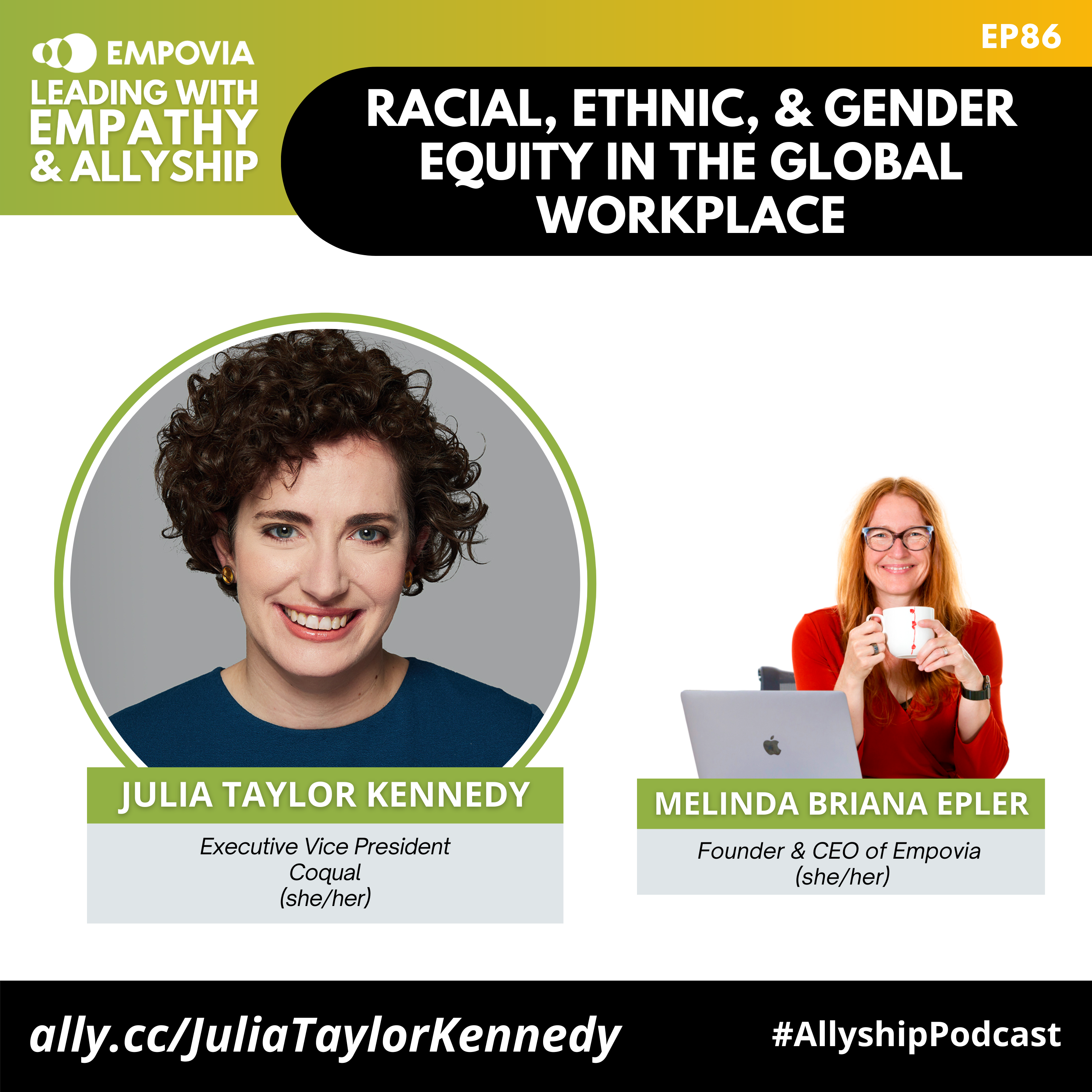
In Episode 86, Julia Taylor Kennedy, Executive Vice President at Coqual, joins Melinda to discuss key insights from Coqual’s Equity Series that feature insights on racial, ethnic, and gender equity in the global workforce. Julia takes us through her findings on specific differences around workplace equity across various countries. She shares how professionals from underrepresented groups experience inequity in performance evaluations, promotions, and compensation. She also offers a strategic approach for employers, managers, and DEI practitioners to measure and improve equity in global workplaces by identifying marginalized groups, addressing systemic issues, and understanding where there might be gaps in inclusion initiatives.
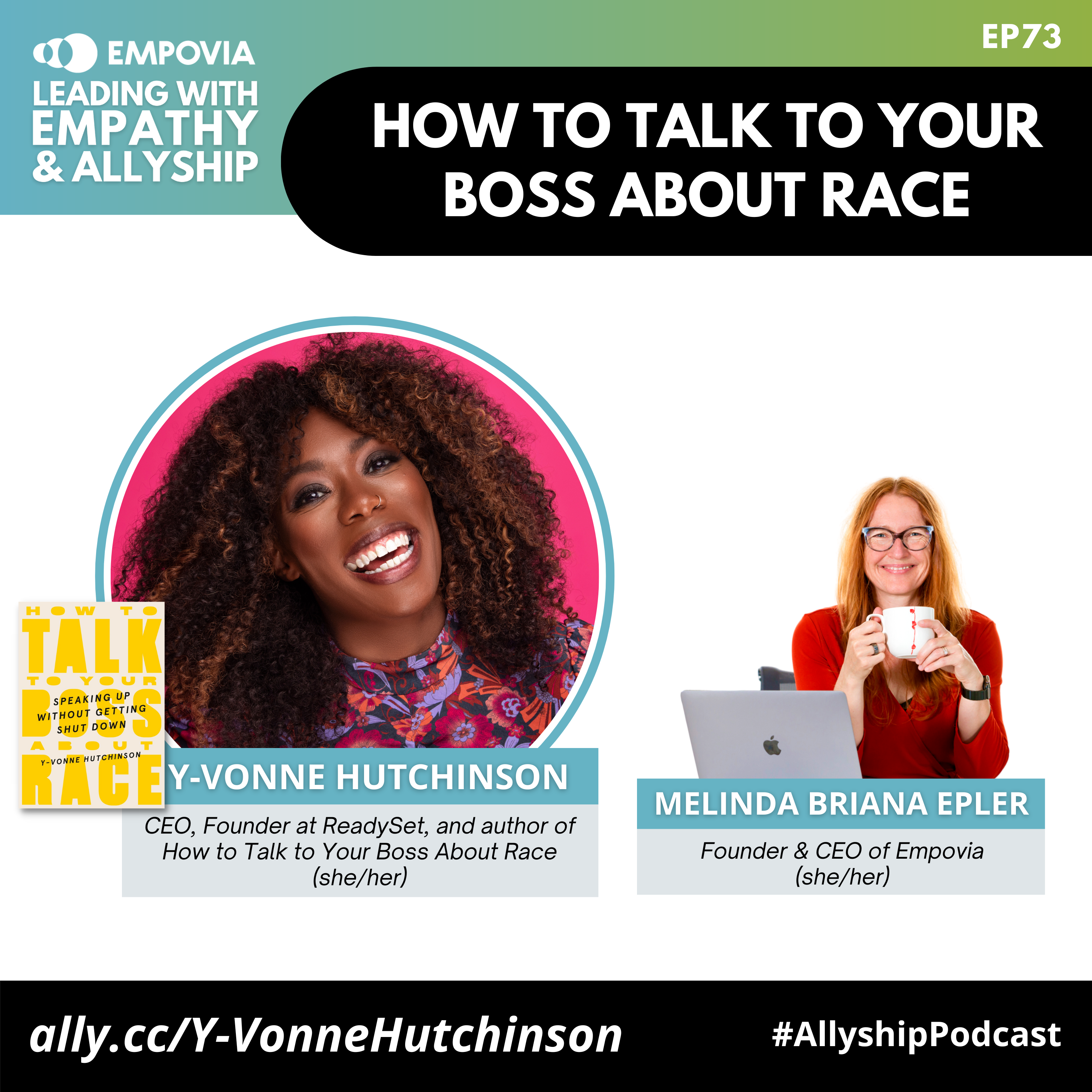
In Episode 73, Y-Vonne Hutchinson, CEO & Founder at ReadySet and author of How to Talk to Your Boss About Race, joins us to discuss how our labor history has informed the racism and microaggressions we observe in our workplaces today, how we can create change through difficult but important conversations, and how we can rethink the role of power as we discuss these issues with our bosses.
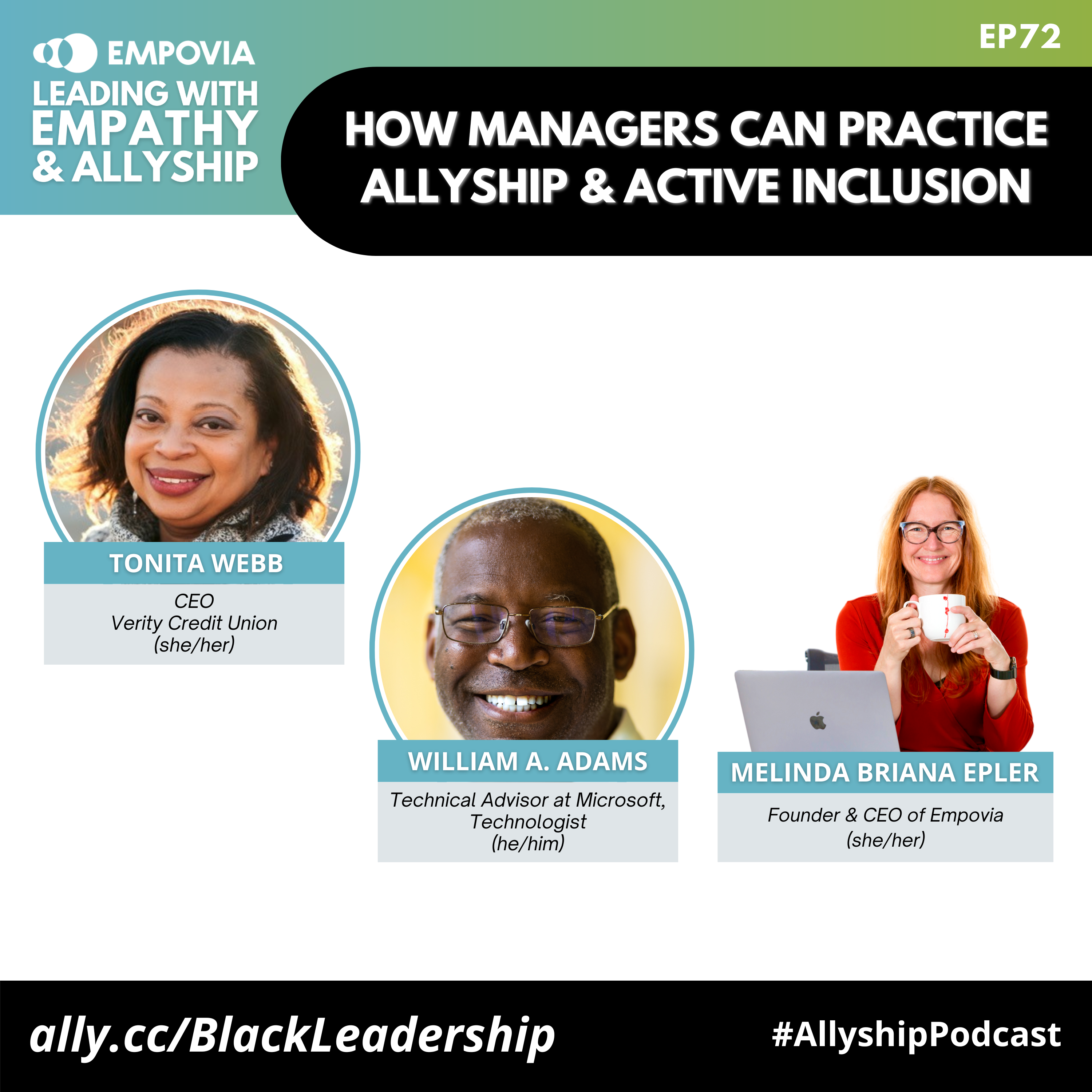
In Episode 72 (recorded live), Tonita Webb, CEO at Verity Credit Union, and William A. Adams, Technical Advisor at Microsoft & Technologist, join us to discuss the systemic barriers and biases that Black leaders experience in the workplace, the importance of self-care and addressing healing, and how we can build workplace culture where Black leaders can thrive.
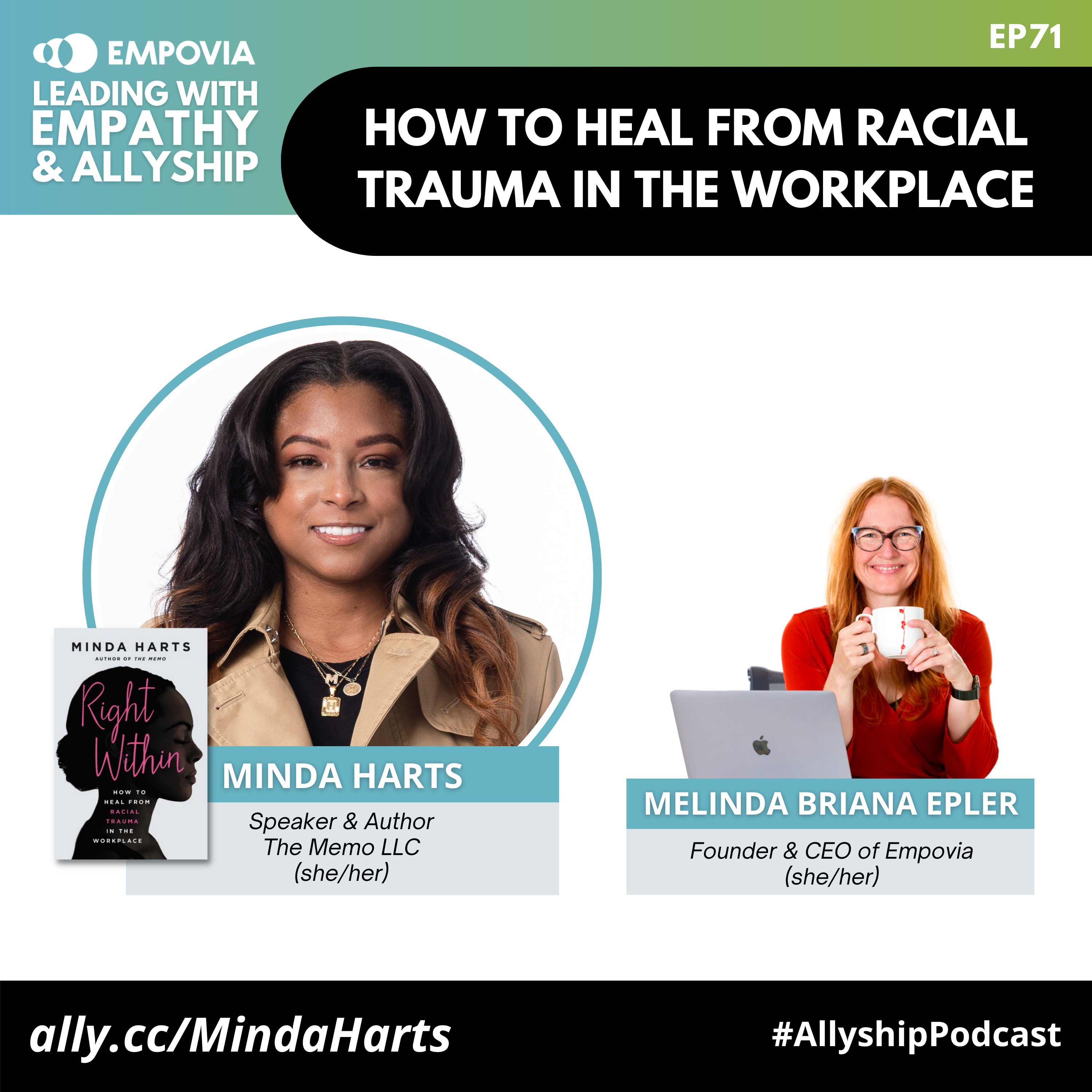
In Episode 71, Minda Harts, Speaker & Author at Memo LLC, joins us to discuss the trauma that women of color experience in the workplace, the role allies can play in the healing process, and how managers can reduce workplace trauma.
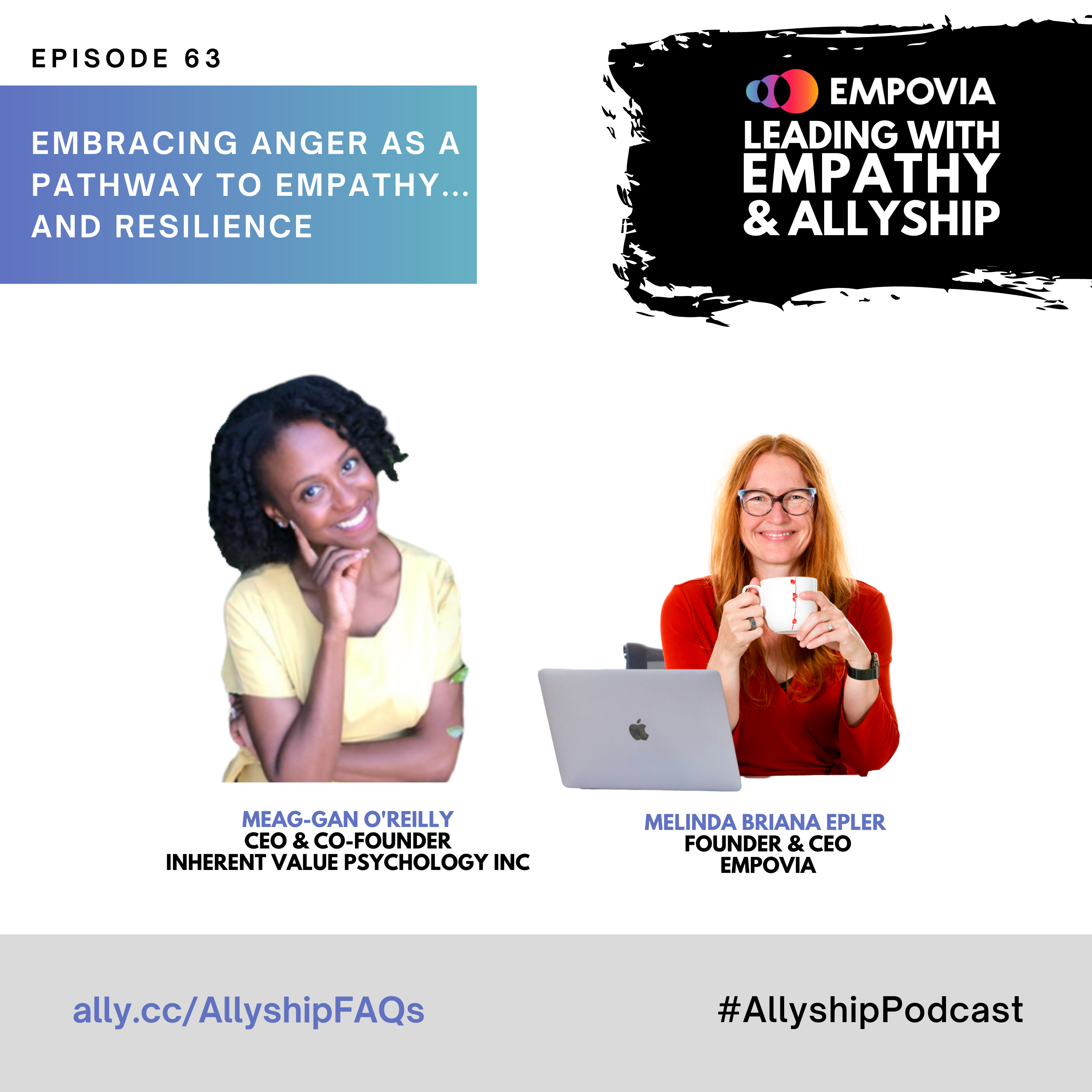
In Episode 63, Meag-gan O’Reilly, CEO & Co-Founder of Inherent Value Psychology INC, joins Melinda in an illuminating conversation about the importance of embracing your anger and how it helps us foster empathy with one another. They also discuss how anger helps us build resilience by allowing us to recognize our own needs and boundaries and how Systems Centered Language can be the first step to dismantling oppression and marginalization.
